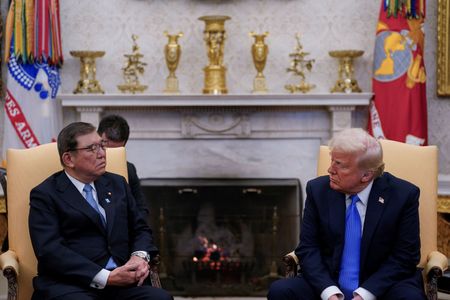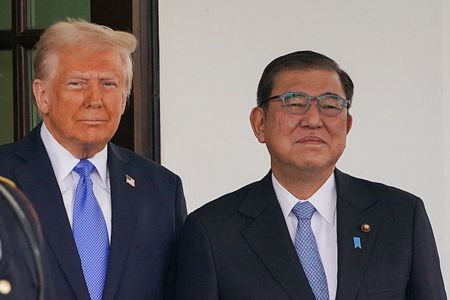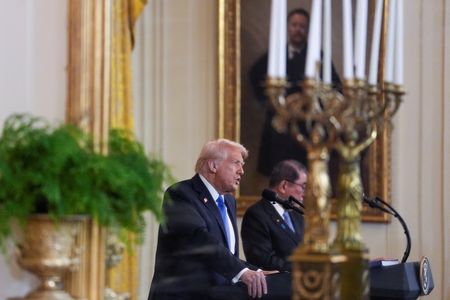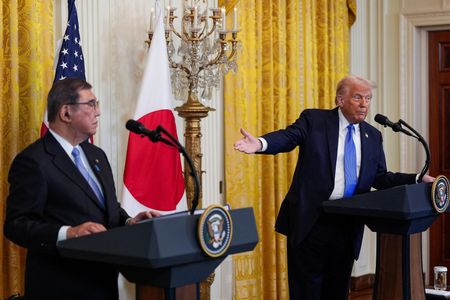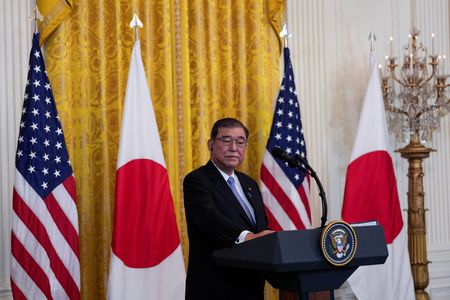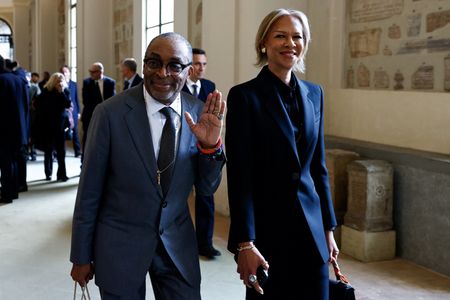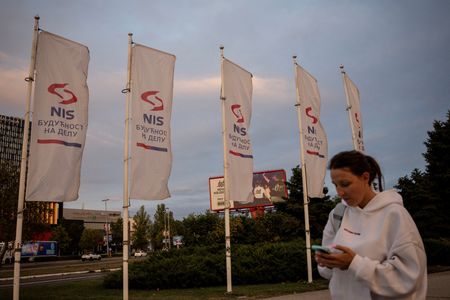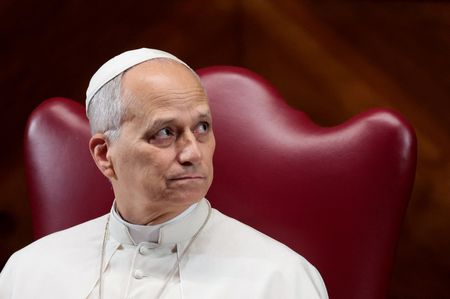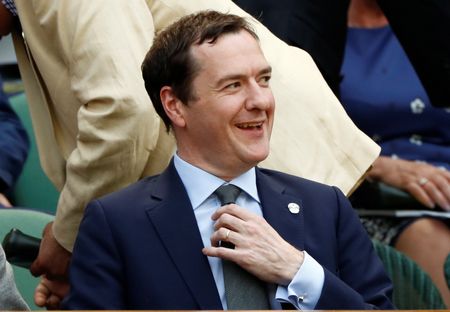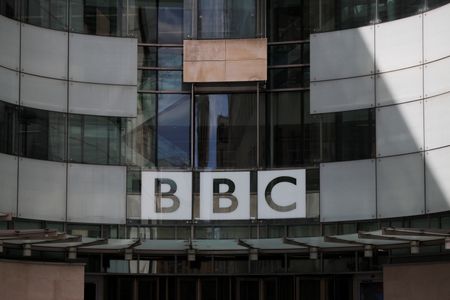By Trevor Hunnicutt, David Brunnstrom and Chizu Nomiyama
WASHINGTON (Reuters) -President Donald Trump on Friday pushed Japan to invest in U.S. energy and technology, showered his closest Asian ally with praise and sought a way out of a dispute over a Japanese bid for U.S. Steel during Prime Minister Shigeru Ishiba’s first White House visit.
Trump announced progress on Nippon Steel’s blocked $14.9 billion attempt to take over U.S. Steel, which he has long opposed.
Trump said Nippon was now looking at an “investment not a purchase,” and added, “I’m okay with that, sure.” U.S. Steel shares traded down about 6%. The companies did not comment, although two sources close to the deal told Reuters Nippon Steel had not withdrawn its bid to buy the U.S. firm.
The U.S.-Japan talks come as escalating trade tensions in the aftermath of Trump’s January inauguration threaten to rupture the global economy. On Friday, Trump unveiled plans next week to impose reciprocal tariffs on many countries. It was unclear if they would apply to Japan.
Trump pressed for Tokyo to close its $68.5 billion trade surplus with Washington but expressed optimism this could be done quickly, given a promise by Ishiba to bring Japanese investment in the U.S. to $1 trillion as well as new purchases of U.S.-produced liquefied natural gas, ethanol and ammonia.
Japan had the largest foreign direct investment position in the United States in 2023 with $783.3 billion, followed by Canada, and Germany, according to data from the U.S. commerce department.
In a press conference, Trump also said the Japanese had expressed interest in a $44 billion gas pipeline in Alaska, but a Japanese official privately told Reuters they still nursed doubts about the project’s viability.
TENSIONS
The Republican U.S. president, whose first three weeks in office have shredded norms and shaken foreign capitals from Ottawa to Bogota, has taken a more conventional approach to Washington’s longstanding Asia-Pacific allies, including Japan, South Korea, Australia and the Philippines.
That approach was on display in a joint statement between the leaders that borrowed liberally from language the countries used under former President Joe Biden.
It included familiar language expressing similar views opposing Chinese military actions in the South and East China Seas, as well as the Taiwan Strait, support for Japanese security, concern over North Korea and Russia.
Trump and Ishiba exchanged compliments during a joint press conference and the U.S. president agreed to travel to Japan in the near future.
“On television, he is frightening and he has a very strong personality,” Ishiba said at the press conference, drawing laughter from Trump. “But when I met with him, actually, he was very sincere and very powerful.”
As the two sat together in the Oval Office, Trump told reporters the countries would work together to get U.S. trade deficit with Japan down to “even” from its current level.
“Should be pretty easy to do,” he said. “I don’t think we’ll have any problem whatsoever. They want fairness too.”
Ishiba highlighted investment plans by Japanese firms Toyota and Isuzu. Asked about the possibility of tariffs, Ishiba said he was “unable to respond to a theoretical question.”
Trump said that after Friday’s meeting, he was “confident that the cherished alliance between our two countries and others also will continue to flourish long and into the future.”
CHINA TRADE
Trump’s early fight with China over synthetic opioids and warnings of tariffs against other countries – Japan included – have threatened to disrupt commercial relations in Asia and beyond.
Trump put a 10% tariff on all imports from China in what he called an “opening salvo” in a clash between the world’s two largest economies, sending consumers and businesses scrambling to adjust.
Trump spoke to Chinese President Xi Jinping days before taking office and has said he will discuss tariffs with him soon.
Japan is especially trade-dependent. A major exporter, it counts on imports for much of its food and natural resources, and many of its firms are deeply invested in and reliant on China.
Trump was close with the late Japanese Prime Minister Shinzo Abe but has no relationship with Ishiba, who took office in October. Analysts said the early White House visit for Ishiba may be a promising signal.
“Japanese Prime Minister Ishiba’s mission was to get in Donald Trump’s good graces and he seems to have succeeded splendidly,” said Danny Russel, vice president of the Asia Society Policy Institute.
“Ishiba handled the notoriously impulsive Trump masterfully, and in doing so likely bought Japan some time and goodwill.”
But Russel said Japan’s increased purchases were unlikely to come close to wiping out the two country’s trade imbalance.
(Reporting by Trevor Hunnicutt, David Brunnstrom, Chizu Nomiyama and Alex Alper in Washington; Additional reporting by Tim Kelly and John Geddie in Tokyo and Ryan Jones in Washington; Editing by Gerry Doyle, Alistair Bell and David Gregorio)

